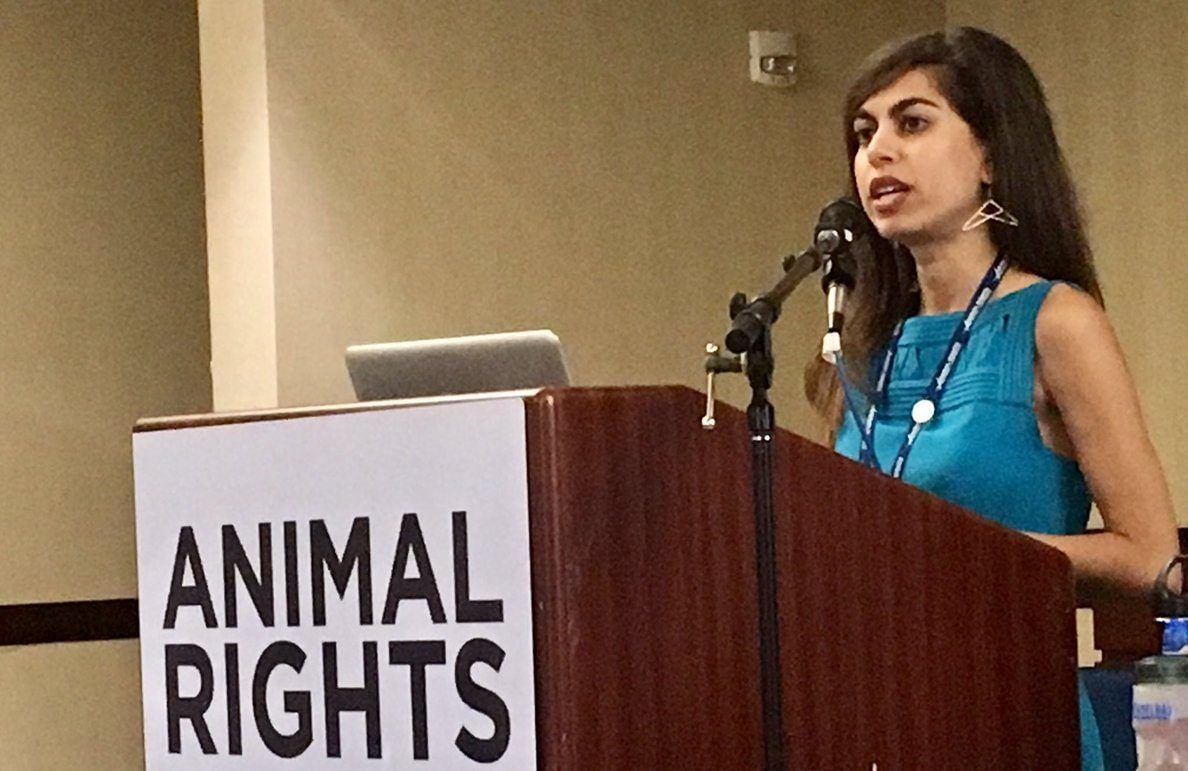According to the U.S. Census Bureau, there will be no racial or ethnic majority in the country by the year 2044, with projections of whites at 49.7% of the population, Latinos at 25%, African Americans at 12.7%, and Asians at 7.9%, while the multiracial group will make up about 3.7%.
These statistics send a clear message: there is an absolute necessity for expanded diversity within organizations and companies in the United States.
Within the farm animal protection sector, some organizations are 100% white — and while others have a few people of color on staff, the numbers show an overwhelmingly one-sided representation. This means that only a fraction of the population is receiving the movement’s vital message.
In comes Aryenish Birdie, a woman on a mission.

Aryenish Birdie
Birdie is founder and executive director of Encompass, a new organization dedicated to helping these groups grow more inclusive.
Prior to creating Encompass, she worked for the Physicians Committee for Responsible Medicine for seven years, where she focused on animal experimentation issues.
“I promoted human-relevant alternatives to the use of animals in toxicity tests for chemicals, cosmetics, pesticides, and other products through outreach to members of Congress and their staff, Fortune 500 companies, federal agencies, and other stakeholders,” Birdie told LFT. “As a lobbyist, I was part of a four-woman team instrumental in reforming the Toxic Substances Control Act to ensure that animal protection language was integrated into the law, securing the first-ever federal legislative victory for animals in labs.”
Yet Birdie noticed that there was even more to be done. With people of color making up only 11% of the farm animal protection movement, she recognized that things needed to change in order to reach the whole population.
“I decided to start Encompass because I saw an opportunity,” said Birdie. “When I joined the animal protection movement over 17 years ago, I couldn’t have imagined the progress we’d make. Our strategic thinking and capability to quickly innovate have both been vital to our success. But something is missing. Can we change a country if we do not reflect the demographics of the people we are trying to influence? It’s with this question in mind that I knew a group like Encompass is needed.”
According to Birdie, there is a “one size fits all” approach to the movement, which has resulted in a primarily middle and upper class white audience.
So, what exactly is Encompass doing to help?
Birdie told LFT about Encompass’ two programs. “The first is to support organizations, understand why and how these concepts are instrumental to their bottom line of helping animals and take concrete steps to making this a reality,” she said. “The other program aims to support advocates of color in both entering the movement and thriving within it, reducing recidivism and burnout.”
There is work to be done, and Birdie is ready. Increasing diversity is instrumental to spreading the message of animal protection throughout the United States. With the strategic approach that Encompass is taking, the movement is poised to experience a rise in awareness, support, and effort to change the way animals are treated.
“Plainly put, diversifying the professional animal protection movement will make us more effective and mainstream. But simply filling diversity quotas is not enough,” said Birdie. “Teams only looking to diversify often come up short, feeding frustration and a sense of ‘tokenism.’ Rather, a culture of inclusivity must be integrated into the foundation of our movement.”








